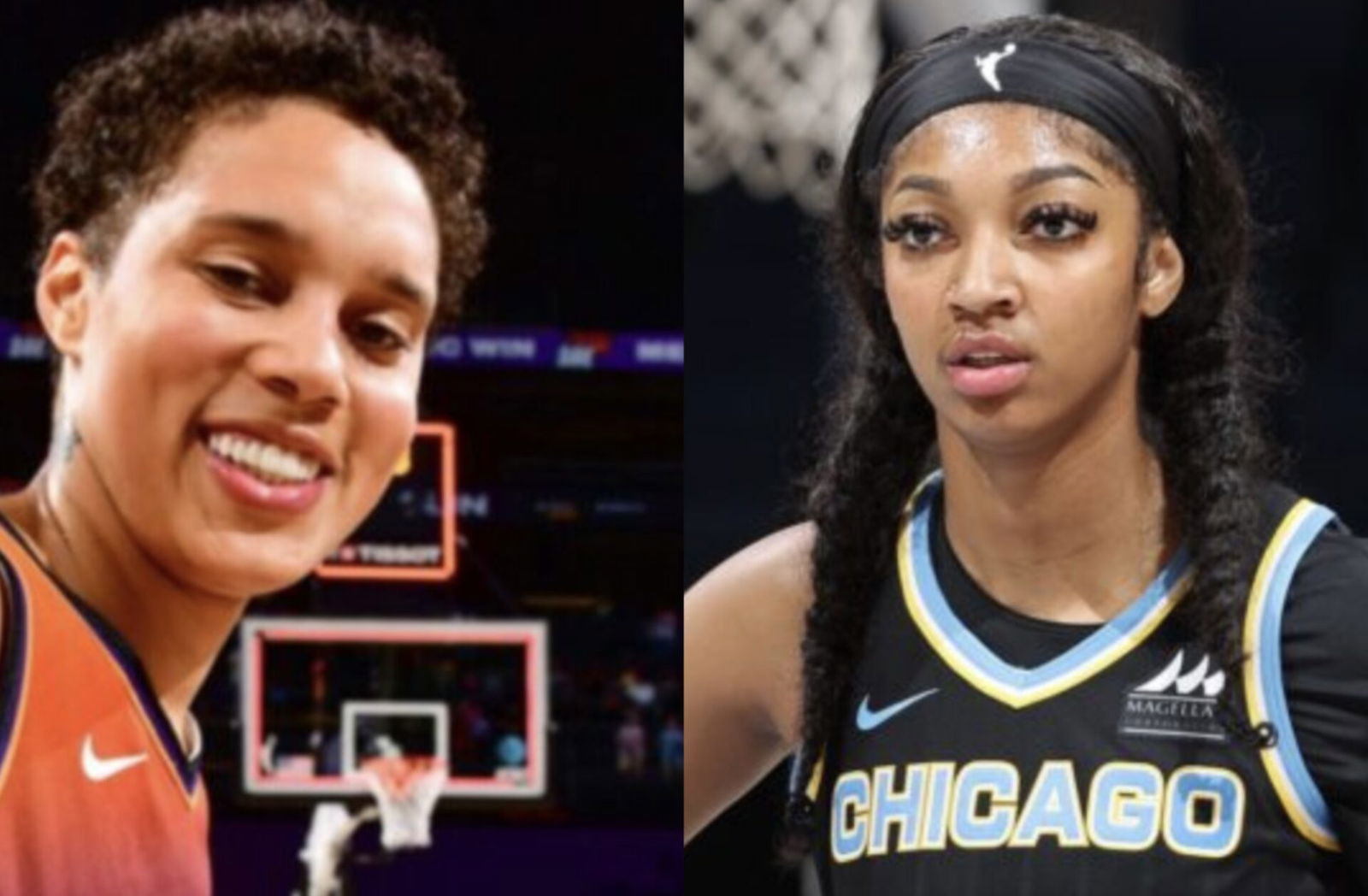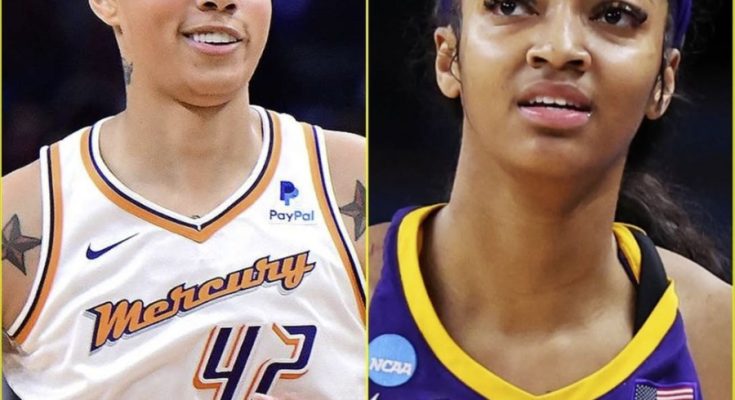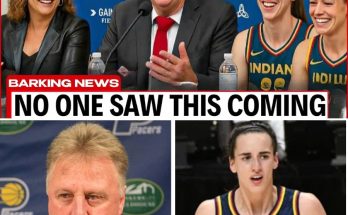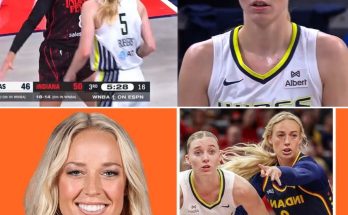
The Women’s National Basketball Association is embroiled in an escalating crisis that could reshape the league’s future as Brittney Griner and Angel Reese, two of the sport’s most prominent figures, announced their intention to permanently leave the league if Sophie Cunningham and Caitlin Clark are not banned for their involvement in a heated altercation during a recent game against the Connecticut Sun. The announcement has sent shockwaves through the league, raising questions about player safety, disciplinary standards, and the WNBA’s ability to manage conflicts among its top athletes.
The altercation in question occurred late in the third quarter of a high-stakes matchup, when tensions boiled over following a series of aggressive plays. Witnesses report that Cunningham and Clark engaged in verbal and physical exchanges that escalated into a confrontation requiring intervention by referees and team staff. The incident was widely circulated on social media, sparking immediate debates among fans, analysts, and former players regarding accountability and league governance.
In response, Griner and Reese, both outspoken leaders and influential figures within the league, issued statements declaring that they could not continue participating in a WNBA season where such conduct goes unpunished. The statements emphasized that player safety and league integrity must be prioritized above individual talent or marketability. Griner, who has previously been vocal on issues of justice and equity within sports, framed the situation as a pivotal moment for the league to demonstrate its commitment to fairness and discipline. Reese echoed these sentiments, highlighting the need for consistent enforcement of rules regardless of player status or star power.
The WNBA CEO has reportedly reviewed the incident and made a formal decision regarding the matter. While details of the disciplinary action have not been fully disclosed, insiders indicate that the ruling aims to balance player accountability with the league’s broader operational and public relations considerations. The decision is expected to have far-reaching implications for the league, influencing team dynamics, sponsorship agreements, and the public perception of professional women’s basketball.
Reaction from teams and coaches has been mixed. Some franchise executives have expressed support for decisive action, noting that maintaining player discipline is essential for preserving the league’s credibility. Others have voiced concern that overly harsh penalties could alienate fans and damage relationships with marquee players. Analysts warn that the current situation underscores long-standing tensions in the WNBA regarding how high-profile incidents are handled and the balance between promoting star athletes and enforcing behavioral standards.
The public response has been equally polarized. Fans have flooded social media with debates, some defending Cunningham and Clark as competitors caught in the heat of the moment, while others back Griner and Reese’s stance as a necessary call for accountability. Hashtags calling for lifetime bans, fines, and stricter league oversight have trended across multiple platforms. Media coverage has intensified scrutiny of the WNBA’s disciplinary policies, highlighting past instances of player misconduct and questioning whether the league’s existing frameworks are sufficient to prevent similar incidents in the future.
Legal experts and sports commentators have weighed in on potential implications. Some suggest that failure to act decisively could expose the WNBA to reputational risks and possible legal challenges if players feel unsafe or unfairly treated. Others emphasize that public perception is as critical as rule enforcement, and the league’s handling of this dispute will influence fan engagement, media partnerships, and sponsorship agreements. The stakes are further heightened by the potential departure of Griner and Reese, whose influence and marketability extend beyond the court and are integral to the league’s commercial success.
The incident also raises questions about the culture within the WNBA and the broader expectations of professional female athletes. Analysts note that the visibility of the altercation, amplified by social media, highlights pressures unique to women’s sports where player behavior is scrutinized intensely and public narratives can shift rapidly. League officials may now face a pivotal opportunity to review training, conflict resolution protocols, and player support systems to prevent similar escalations in the future.
As the WNBA moves forward, the league will need to navigate a delicate balance between enforcing rules, protecting player welfare, and maintaining its competitive and commercial viability. The outcome of this disciplinary decision will likely set a precedent for how serious on-court confrontations are addressed, shaping the policies and culture of the WNBA for years to come. Fans, players, and sponsors alike will be watching closely, and the stakes could not be higher for the league’s leadership. The coming days are expected to be critical in determining whether the WNBA can uphold its integrity while retaining its top talent and maintaining public trust.



